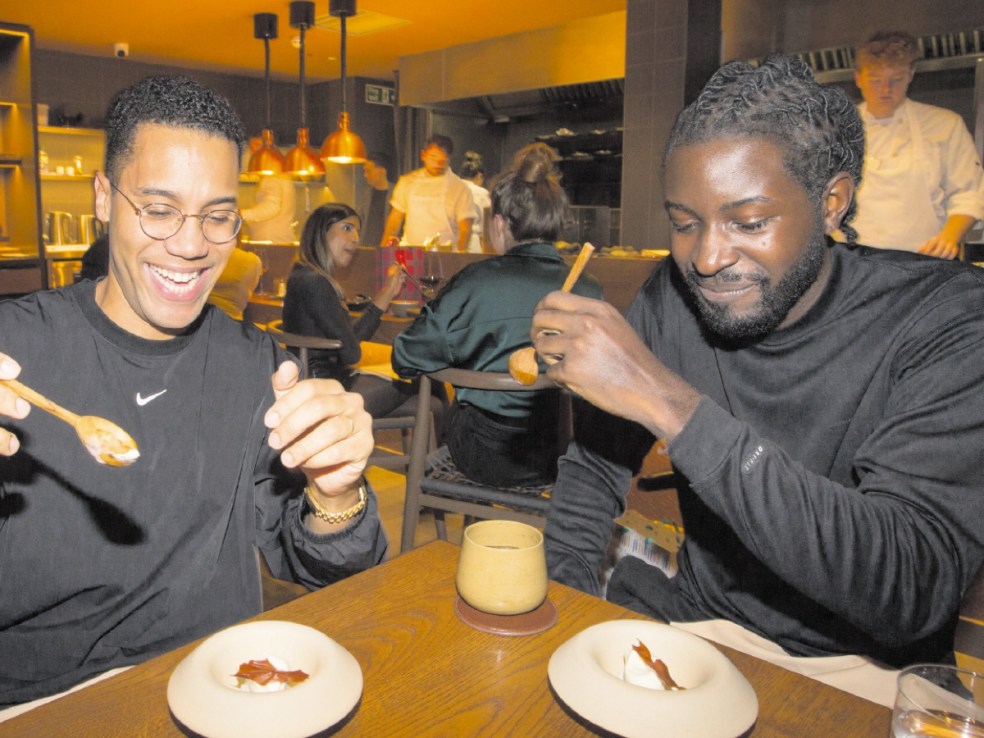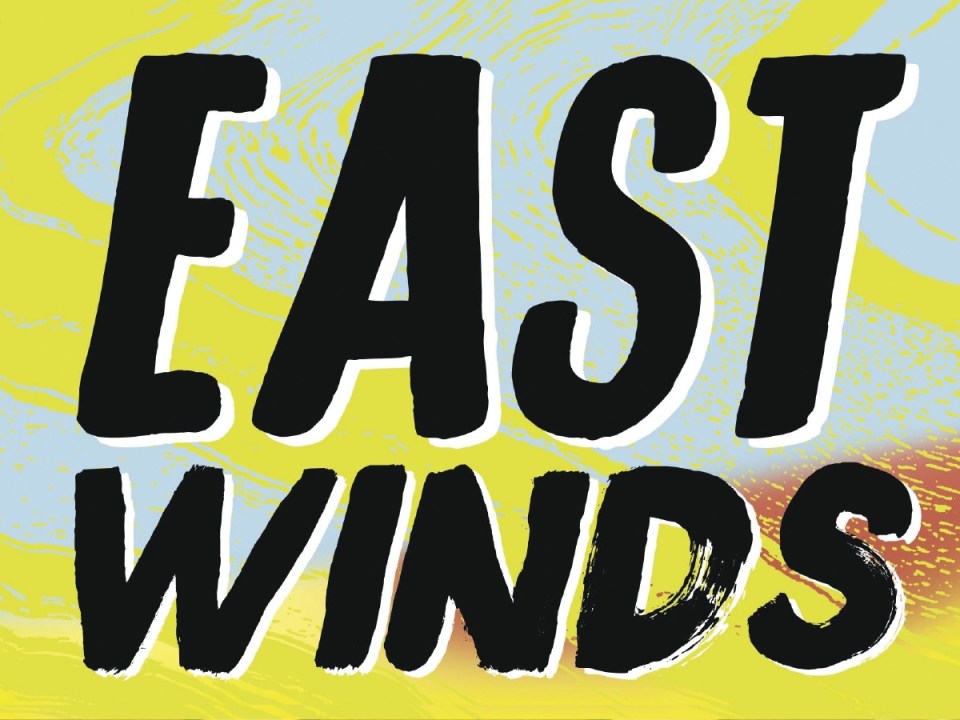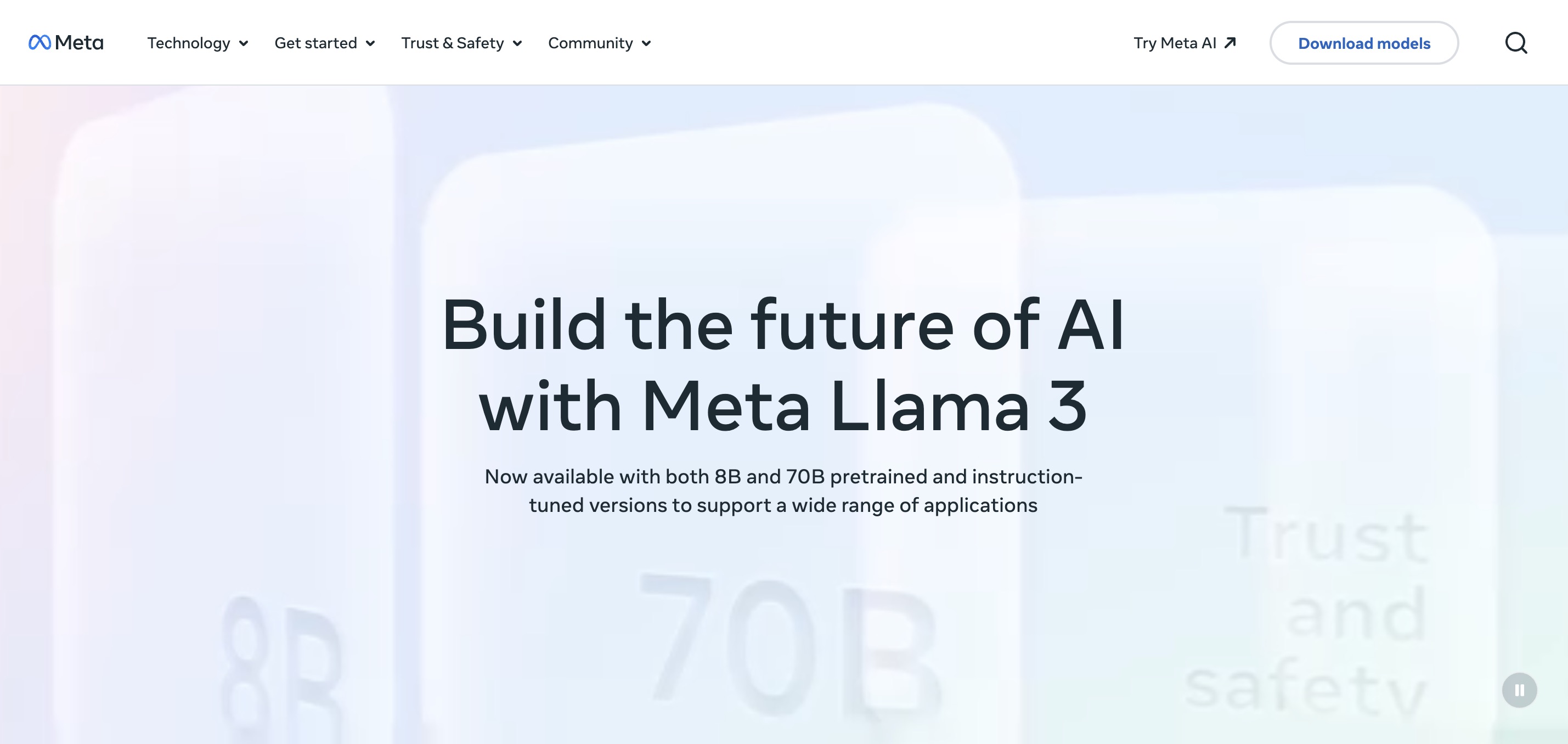‘All the DJs have left Berlin!’ Riaz Phillips interviews Mickey Down
Food writer and author Riaz Phillips interviews his old flatmate and fellow Oxford University grad Mickey Down, the co-creator of Industry


Food writer and author Riaz Phillips interviews his old flatmate and fellow Oxford University alumnus Mickey Down, the co-creator of hit TV show Industry, at the hip West African restaurant Akoko.
The Meal:
- Yassa, chicken Mousse, truffles
- Octopus, Vatapa
- Goat Cashew Cream, caviar
- Lamb, Aubergine, Shito,
- Uda Ice Cream, coffee cake
Mickey Down: Hey, it’s great to see you, it’s been ages! This was basically an opportunity to catch up because we hardly see each other now.
Riaz Phillips: Yeah, since I moved to Berlin it’s been tricky, although I’ve been back quite a lot recently. When I first moved, just before Brexit, I was a political refugee for a while. I wouldn’t have been able to make the move at all now – I haven’t met anyone who has since Brexit. Loads of people left, too – all the DJs cleared out!
MD: As much as I’d love to do a really long lunch and wine pairing, I have a meeting with a director this afternoon and I can’t be drunk!
RP: Yeah I’m not drinking either – every time I come back to the UK I have to cram everything into a week. I’m cooking for 40 relatives tomorrow. You have family from Ghana, right? Do you eat Ghanaian food with them?
MD: Yeah, we eat Ghanaian food on Christmas eve. My granny used to cook a big meal for everyone before she passed away. When she died I was worried the recipes would be gone forever but my mum has taken up the mantle now. We have pavlova sauce, which is like a spinach sauce, and we might have it with goat or lamb or fish, some peanut soup, some fufu, which is like a ground maize, lots of plantain, kenkey fish – a lot of strong flavours. I don’t cook any of it though. I really enjoy cooking but I have a fairly small repertoire – I can make a very good chicken pie. I’ve been making a few cupcakes with my daughter but they always come out a bit gooey.
RP: That’s funny, I think a lot of people are going back to recipes that they would maybe have been too embarrassed to try a few years ago – cup cakes and Victoria sponge and banana cake. They’re so easy to make but they’re so, so good.
MD: Talking of good – this food is absolutely amazing!

RP: I honestly wouldn’t really know where to go out to eat Ghanaian food in London.
MD: It’s sad but since my grandparents passed away I only really eat Ghanaian food on Christmas eve. I guess you’re the opposite – you must eat Caribbean food all the time?
RP: Yeah, all the time. You can get good Caribbean food in Berlin. People assume it’s going to just be hotdogs and bratwurst but there’s actually a lot of diversity. There’s a lot of African food too. There’s this amazing Vietnamese-owned shop near where I live that sells every African ingredient you could think of. It also plays really hard trance music – it’s the best shop I’ve ever been to.
MD: How are you enjoying Berlin?
RP: Berlin is very chilled. People think it’s this crazy, hyper city but it’s not like that at all, it’s far more relaxed than London or New York. There’s a much bigger separation between work and your social life. Nobody ever asks ‘what do you do?’. They have these lakes all around the city and every weekday lunchtime they will be packed – there’s not this feeling that ‘oh, we should be working’. When I’m in London I feel guilty if I’m not constantly working – people in Berlin think I’m crazy. There are other things that are just different, too – you can go to a club and see a couple in their 60s and it’s totally normal. It’s far less ageist.
MD: It’s the only city in Europe where I visited and thought ‘Oh, I could live here’, especially when I was in my 20s. That dream is unfortunately dead now! Over the pandemic I was living in Somerset and I loved it. My wife had just had a baby and I was living in the vicarage in this village that was so tiny it didn’t even have a shop. I never had anyone over to stay and it was absolutely great. Do you cook this kind of food?
RP: I’m definitely inspired by the African diaspora. My family are from the Caribbean and because of the nature of human movement over history, it has influences from all over the world. There are massive influences from Ghana and parts of West Africa. I like connecting the dots and seeing the similarities.
West Africa has never been seen in the same light as foods from everywhere else. I went to Ghana and you see these people with these amazing talents, getting up at 5am and pounding yam with these huge pestles, which is insanely difficult. They’re fermenting stuff, doing the same things as restaurants like Noma but not getting any of the recognition, basically because it’s African. I think it’s changing now, partly because of restaurants like this and Ikoyi.
MD: You have a new book out, right?
RP: Yeah, this one is called East Winds, which is a sequel to West Winds. I always wanted to do two books. The view of Caribbean food and culture in the UK is kind of singular and usually led by Jamaica, all palm trees and white sand and Bob Marley. I wanted to show how much more it is than that. Food tells all these stories about the people who came to the Caribbean. So the first book was about Jamaica, which is overwhelmingly made up of people with West African heritage. But I have a whole side of my family who are Indian Caribbean – I have an Indian name. East Winds is a homage to that side of my family, who are from Trinidad and Tobago and Guyana.
Their history is basically British history. The reason there are Indian people there is because the plantation owners brought them over so they could continue making property in the Caribbean. Jamaica is 90 percent black but Trinidad and Tobago and Guyana are a third black and a third Indian, which has a massive impact on the food – you start seeing roti and aloo. That’s the national food of those countries. You’d never see jerk chicken there.
RP: What about you anyway, how’s Industry going? How much are you involved beyond the writing?

MD: Me and Konrad Kay wrote every episode, directed every episode bar one, and we were executive producers of the show, so we were across every single part of it. Traditionally in the UK the writer would hand a script over to the director and then might not have anything more to do with the show. Industry uses the American system where the writer – who is often the showrunner and executive producer – is king.
RP: How was it going from being a writer to a showrunner?
MD: It’s intense. You get into the industry because you like to write. And then suddenly, you’re in charge of 150 cast and crew. You’re suddenly an HR department and a money manager, and these things are not necessarily in the skill set of a writer. The people that rise to the top are the ones who are good at everything.
It’s funny, I’d never been in a writers room until I was running my own and the first season of Industry reflects that: there’s no story, there’s no real structure, it’s just eight hours of vibe. I had to learn from messing up and I’m really proud of the new ones.
I’ve always had quite a commercial way of writing. I think it’s an art form and the artistry is very, very important. But there’s just so much content and a lot of it’s rubbish so you want to entertain and give people what they want.
RP: Will there be a season four?
MD: I’d like there to be, yeah.
RP: Do you read your reviews?
MD: Oh yeah, every single one. I find it so weird when people say they didn’t read them – I can maybe understand for actors because there can be some really nasty stuff in there about the way they look but for someone in my position I don’t believe anyone who says they don’t read them.
RP: Thankfully food books don’t have that same media ferocity as TV. We both did internships in the City, remember? I was doing a currency exchange type thing in Canary Wharf and you were at Morgan Stanley.
MD: Yeah I was doing private wealth management. Basically taking posh blokes out for dinner. I realised I like the trappings of it. I liked wearing a suit and tie to work. I loved it. But I was never going to be really good at it. I was getting paid so much money for that time in my life so I was going out four or five times a week and turning up to work so, so hungover.
I joined Rothschild and I tried to start writing but the hours just were too long. We’d do 80-100 hours a week sometimes and after that all you want to do is watch The Simpsons and go to sleep. So I quit – my parents thought I was mad. Thankfully Industry happened and they realised it was the right choice.
RP: Yeah, and I did the same – left my corporate job and dived into food instead. Looks like we both made the right decision in the end!
• Riaz’s latest book, East Winds: Recipes, History and Tales from the Hidden Caribbean, is out now priced £19.95; The next season of Industry is coming this summer



